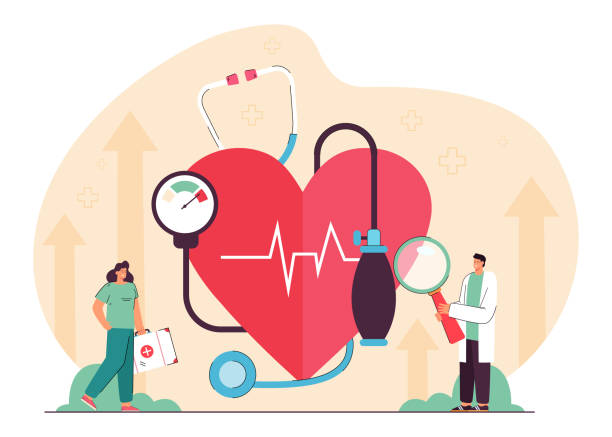
If left untreated the high blood pressure could cause heart problems or stroke, as well as kidney failure. You can avoid this through avoiding sodium intake, working out, and changing your diet.
The majority of people need to be treated for the remainder of their lives in order to manage hypertension. Treatments can work by flushing out excess fluid, decreasing the heart rate or expanding blood vessels.
The Reasons
Blood pressure is the force of blood pushing against the wall of your blood vessels. Two numbers compose your blood pressure reading The top one is the pressure that occurs when your heart pumps blood out (systolic) and the bottom number is the pressure when your heart is resting between heart beats (diastolic). You can get more info about blood pressure by browsing https://www.mojacukrzyca.org/?a=text&id=4673&des=nadcisnienie-tetnicze-i-cukrzyca-co-warto-wiedziec site.
Your body may be affected due to high blood pressure in the course of time. As the damage increases the blood vessels become narrower, making it more likely for you to suffer a stroke, kidney disease and heart disease.
The reason for the majority of instances of hypertension isn't understood yet, however, it's a common occurrence to run in families and it's most prevalent in those over age 45. The risk is also higher to be a problem for blacks and individuals who are overweight or obese. Some other factors that increase your risk of having hypertension are smoking cigarettes or eating foods that is high in salt and excess alcohol intake.
The indications
Many people don't have symptoms when they have high blood pressure. In time the high blood pressure can cause damage to the blood vessels. This can lead to stroke, heart disease and other serious health conditions.
The top number in a blood pressure reading is referred to as the systolic number and measures the force that blood pushes against the artery walls whenever your heart beats or contracts. The lowest number is the diastolic and measures the blood pressure vessels in between heartbeats.
Certain factors increase the risk of hypertension. These include being over age 65, having a non-Hispanic black American or having obesity. Other risk factors are a diet that is rich in sodium, drinking excessively alcohol, as well as smoking cigarettes. There is good news that hypertension can be treated. The treatment includes both lifestyle modifications and medication. The most significant lifestyle changes include avoiding salt, following a balanced diet and getting regular physical activities.
Diagnosis
The force of blood pressure is that of blood moving against blood vessel walls when the heart beats and pumps blood. In time, high blood pressure may cause damage to the heart. This includes the arteries becoming more hardened, strokes, kidney diseases and heart failing. The condition can be present without signs, therefore it is important to check it regularly.
The blood pressure reading is comprised of two numbers namely systolic that describes the amount of tension when the heart beats and pumps blood. It is also known as diastolic pressure. This is the pressure inside the arteries during beats when the heart slows down and fills with blood. It is important to keep the reading below 140/90 mm Hg.
A healthy diet, exercise as well as weight loss medications can lower blood pressure. Certain medications can slow down the rate of heart beat or expand the blood vessels. Some work by eliminating extra fluid and salt from the body. Sometimes it takes a bit of trial and error before you find the best combination of medications as well as lifestyle modifications for an individual.
Treatment
If not treated If left untreated, high blood pressure could damage arteries, leading to heart failure, stroke or kidney disease. In addition, high blood pressure could cause ringing in the ears as well as headaches, nosebleeds and migraines however, the majority of people suffering from hypertension don't experience any of these this is the reason it's referred to as a "silent killing."
The treatment includes lifestyle modifications like eating better, losing weight and avoiding salt, quitting smoking as well as regularly working out. Medications to lower blood pressure include diuretics (water pills), beta blockers, calcium channel blockers and angiotensin-converting enzyme inhibitors. Certain people might require an array of drugs to manage their blood pressure.
It is essential for patients to stick to the doctor's regimen, which includes taking their medication exactly as prescribed. Skipping a dose or cutting an entire pill can result in dangerous side effects. It is important to take regular home readings. You can get cheap monitors for digital use and keep track of the results. Also, learning to manage anxiety and implementing relaxation strategies can assist.